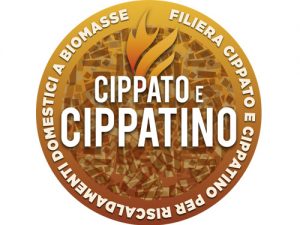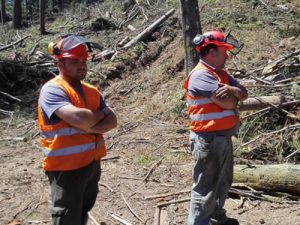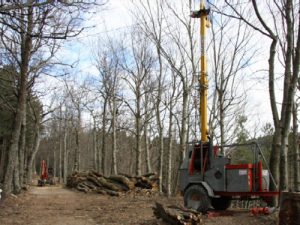The TSA includes 6 partners. These include: 2 forest companies (Antonio Orlandini and Olivieri Luca), one higher education institution (University of Florence), 2 specialized; research centers (CNR IVALSA and IBIONET) and the farmers association Cia Toscana. Both farms participating in the TSA are family businesses operating in the forestry sector, one in the Province of Pistoia and the other one in the Province of Lucca. Both farms produce firewood, chips and wooden poles.
The TSA includes 6 partners. These include: 2 forest companies (Antonio Orlandini and Olivieri Luca), one higher education institution (University of Florence), 2 specialized; research centers (CNR IVALSA and IBIONET) and the farmers association Cia Toscana. Both farms participating in the TSA are family businesses operating in the forestry sector, one in the Province of Pistoia and the other one in the Province of Lucca. Both farms produce firewood, chips and wooden poles.
This entrepreneurs network, seeks to develop innovative solutions in order for farmers to reach the global market. without administrative burdens and legal constraints. Many farmers are really interested in signing cooperation agreements, but they are discouraged by the eventual obligations and loss of independence of their companies. The RQT entrepreneurs’ network allows its membership to reach some common objectives within the consortium without carrying out commercial activity, without VAT fees, and thereby significantly reducing the administrative and financial burden. . Each company maintains its individual legal status and participates in the network only to attain common objectives. RQT was established with the objective to participate in regional calls for multi-actor chain projects co-financed by the Rural Development Program. RQT initially managed a project called QUALITOSCA- NA.NET(http://www.retequalitatoscana.it) in the period 2012-2014, realizing investments for €3,640,000 for the promotion of direct selling by farmers; and adopting a certified production system.
In 2015, RQT participated in a second call for chain projects with the project AGR-EAT (http://www.retequalitato- scana.it/home/progetto-agr-eat/.) The total value of this project was €7,700,000. This second project, currently underway, aims to create a network of agro-restaurants based on the products of local farmers. The project is working in collaboration with High School S. Anna of Pisa in order to realize a selection of products for people with low tolerance to gluten.
RQT is an open network. All policies and key decision are discussed and agreed at shareholders meetings, which are convened 3-4 times per year. The daily management is overseen by a management committee composed of three members. The network does not employ its own staff, because the administrative management is very light: no official accountability, no enterprise obligation, only a single financial report approved by the assembly. Therefore the cost of management is very low and sustainable; another company not associated in the network manages the chain project and the cost of this activity is charged to the beneficiaries of the financial support received by Tuscany Regional Government.
The main knowledge requirements related for operating such an initiative include:
- Cooperation system in agriculture
- Rules regulating this form of cooperation (legal framework, administrative management),
- Principles of direct selling and short chain strategy
The main benefit for farmers participating in RQT is the opportunity to cooperate with a low cost in a common eco- nomic action aimed at implementing chain projects receiving the financial support from RDP for their own invest- ments. Another advantage for being involved in the entrepreneurs’ network is the marketing activity of RQT i.e the promotion of certified systems for quality production represents as an indirect form of valorization for the members of RQT.
The critical point is that many farmers consider obtaining financial support from the Rural Development Program (RDP) as the only scope of the network. Therefore, many farmers are not interested in investing in RQT as a means to strengthen its activities. This form of cooperation can be a very interesting opportunity to bring a group of small farmers with collective interests in order to share production processes, equipment, tools or services (i.e. advisors, technical consultancy, other). Possible advantages and disadvantages include:
Advantages:
- Low management costs and low administrative/contractual burdens.
- Limited financial risk.
- Possibility to leave the network at any time.
- Commercial promotion of its members through the actions aimed to promote certified systems for quality produc- tion.
Disadvantages:
- The structure (in terms of legal guarantees and administrative staff) is not suitable to manage large business activities.
- The composition of the network is unstable. The life of network require an high level of cohesion between partic- ipants.
Advice/Recommendation
According to Lorenzo Vagaggini project manager and coordinator of the project, the following points
are very important:
“The cooperation must start with the scope of solving a concrete problem faced by the farmers or creating new opportunities.”
“The success of this project is due to the common work between farmers and researchers. In our case the work of researcher was based starting from the concrete situation of farmers, developing solutions to improve the production processes.”
Queries/Questions
- What) innovation(s) do you consider useful for your farming activity?
- Would you consider the potential to engage in research projects either individually or through a farming organisations/network you are involved in?
- Are you aware of any research projects or other innovative actions similar to the one described here?



 Čeština
Čeština  English
English  Français
Français  Deutsch
Deutsch  Italiano
Italiano  Slovenščina
Slovenščina  Español
Español 



